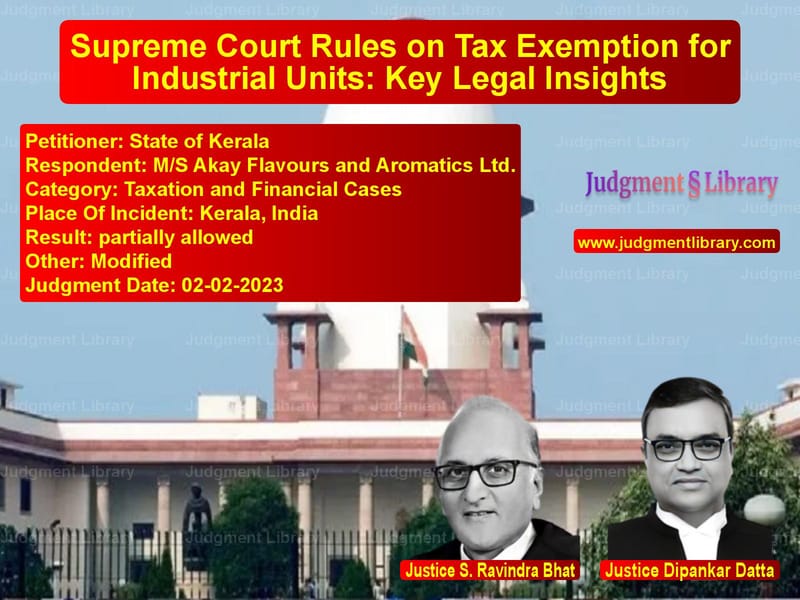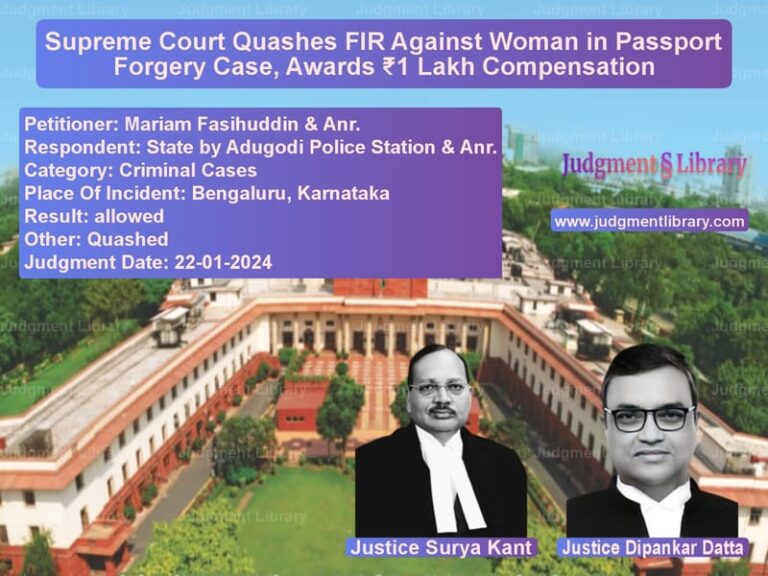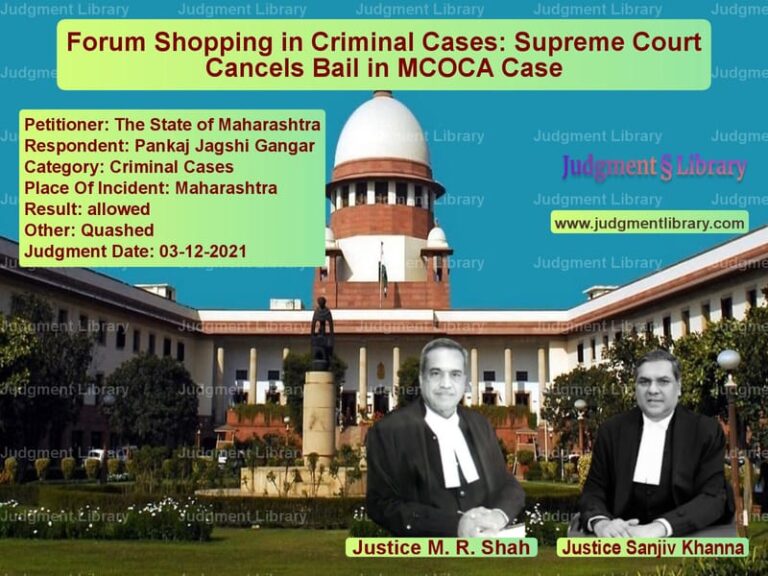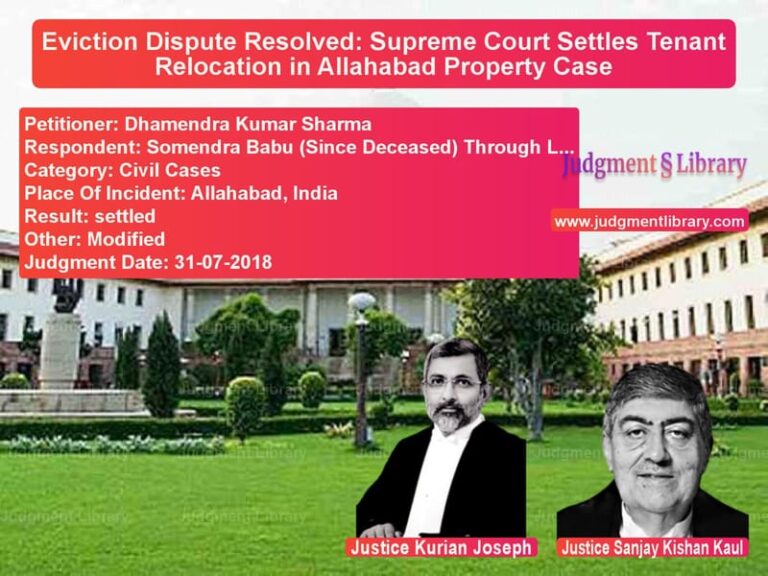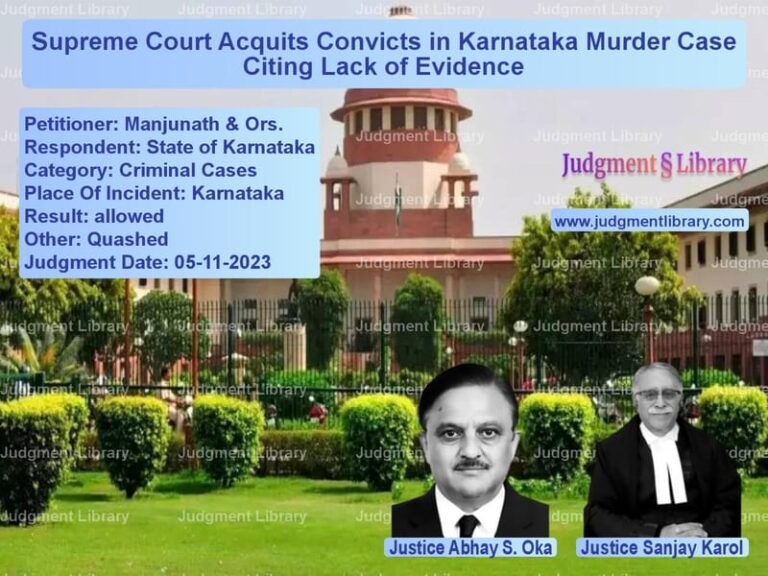Supreme Court Rules on Tax Exemption for Industrial Units: Key Legal Insights
The Supreme Court of India recently ruled in the case of State of Kerala vs. M/S Akay Flavours and Aromatics Ltd., addressing a dispute regarding tax exemptions for industrial units under an exemption notification issued by the Kerala government. The key issue in this case was the interpretation of the term ‘approval by the Central Government’ under the exemption notification SRO 1727/1993.
Background of the Case
The dispute arose when the Kerala State Revenue Department denied a tax exemption to M/S Akay Flavours and Aromatics Ltd., arguing that the five-year exemption period commenced from the date of approval by the Central Government. The company, on the other hand, contended that the exemption should start from the date of commencement of production.
The relevant notification, SRO 1727/1993, granted tax exemptions to 100% Export-Oriented Units (EOUs) for five years from the date of approval by the Central Government. The notification provided exemptions on the purchase of industrial raw materials, plant, and machinery.
Petitioners’ Arguments
- The Kerala State Revenue Department argued that the exemption period must begin from the date of the Central Government’s approval letter, which was issued on December 16, 1993.
- The government contended that the company had already begun purchasing raw materials and machinery after receiving this approval and that production delays should not affect the exemption period.
- The Revenue Department maintained that allowing the exemption from the commencement of production instead of the approval date would introduce subjectivity and inconsistency.
Respondents’ Arguments
- The company argued that the Central Government’s letter dated December 16, 1993, was merely a permission letter and not a final approval.
- They contended that the actual approval for tax exemption was granted only on October 27, 1994, when the ‘Green Card’ was issued.
- The respondents emphasized that the unit commenced production on October 1, 1995, and that the exemption period should start from this date.
- They claimed that denying them the exemption from the production commencement date would be unfair and inconsistent with the purpose of the notification.
Key Observations by the Supreme Court
The Supreme Court analyzed the notification and made several key observations:
- The Court noted that the notification explicitly stated that the exemption period begins from the ‘date of approval’ by the Central Government.
- It ruled that the letter dated December 16, 1993, was merely a preliminary permission, while the actual approval was given on October 27, 1994, through the issuance of the ‘Green Card.’
- The Court held that the phrase ‘date of approval’ must be interpreted to mean the final, unambiguous approval, which occurred on October 27, 1994.
- The bench emphasized that granting exemptions based on the production commencement date would introduce uncertainty and allow undue delays in claiming benefits.
Judgment
The Supreme Court ruled as follows:
- The date of approval for tax exemption purposes was held to be October 27, 1994, when the Central Government issued the Green Card.
- The company was entitled to a five-year exemption starting from October 27, 1994.
- The Court rejected the company’s contention that the exemption should start from the date of production commencement.
- The appeals were partly allowed, clarifying that approval by the Central Government means the final approval and not a mere permission letter.
Implications of the Judgment
This ruling has significant implications for tax exemptions and industrial policies:
- Clarity on Tax Exemption Rules: The judgment sets a precedent for interpreting exemption notifications, ensuring that benefits are granted from the date of final approval.
- Standardizing Approval Timelines: The ruling ensures that all industrial units follow a uniform system for claiming exemptions, avoiding delays based on subjective commencement dates.
- Preventing Policy Misuse: The decision discourages companies from delaying production commencement to extend exemption periods.
- Guidance for Future Tax Disputes: The Supreme Court’s interpretation provides clarity for both businesses and tax authorities in similar cases.
Conclusion
The Supreme Court’s decision in this case is a landmark ruling that provides much-needed clarity on the interpretation of tax exemption notifications. By ruling that the exemption period starts from the date of final approval, the Court has ensured consistency and fairness in tax policy implementation. This judgment serves as a crucial precedent for future disputes involving government incentives and industrial benefits.
Petitioner Name: State of Kerala.Respondent Name: M/S Akay Flavours and Aromatics Ltd..Judgment By: Justice S. Ravindra Bhat, Justice Dipankar Datta.Place Of Incident: Kerala, India.Judgment Date: 02-02-2023.
Don’t miss out on the full details! Download the complete judgment in PDF format below and gain valuable insights instantly!
Download Judgment: state-of-kerala-vs-ms-akay-flavours-an-supreme-court-of-india-judgment-dated-02-02-2023.pdf
Directly Download Judgment: Directly download this Judgment
See all petitions in Income Tax Disputes
See all petitions in GST Law
See all petitions in Tax Evasion Cases
See all petitions in Banking Regulations
See all petitions in Tax Refund Disputes
See all petitions in Judgment by S Ravindra Bhat
See all petitions in Judgment by Dipankar Datta
See all petitions in partially allowed
See all petitions in Modified
See all petitions in supreme court of India judgments February 2023
See all petitions in 2023 judgments
See all posts in Taxation and Financial Cases Category
See all allowed petitions in Taxation and Financial Cases Category
See all Dismissed petitions in Taxation and Financial Cases Category
See all partially allowed petitions in Taxation and Financial Cases Category

